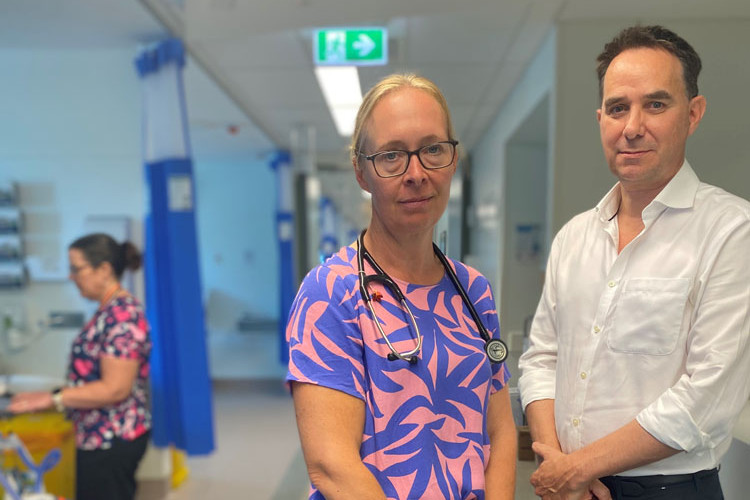Business
28 October, 2024
Surviving soil disease
DESPITE melioidosis cases increasing tenfold in the past 20 years in the Cairns region, survival rates for the disease at Cairns Hospital are now among the best in the world, according to a research study.

Melioidosis is a bacterial infection found in the soil and surface water and it’s more active during the wet season, making this time of the year riskier for Far North Queenslanders.
The infection usually involves patients with underlying health conditions, such as diabetes, which increases the risk of the life-threatening infection, and it can lead to sepsis that, without appropriate treatment, can kill someone within hours.
Cairns and Hinterland Hospital and Health Service infectious disease specialist Dr Josh Hanson said their research had found that in the past five years almost 90 per cent of the cases admitted to the intensive care unit (ICU) with melioidosis survived their infection.
“Incidents of melioidosis in the Cairns region have actually increased tenfold in the last 20 years and the incidence in the Far North Queensland region generally has increased fourfold in the last 20 years,” he said.
“Management now is much better and we now have an overall survival of over 90 per cent. It does mean, unfortunately, that one in 10 people will die from the infection and, even the people who do survive, are often left quite debilitated by their infection.
“If we look at the intensive care population – that’s the group that I’ve been studying – we saw that about two thirds of people died in the first five years of the study and now we’re down below 14 per cent.
“Our numbers are improving, we’re also recognising that people who get melioidosis are sicker and weaker often from other conditions, so if we can get them through the serious infection we can treat their diabetes, kidney disease, lung disease, the conditions causing melioidosis in the first place and improve their long term outcomes.
“Major advances in the management of sepsis have also significantly improved the survival of people with melioidosis requiring ICU care in FNQ over the last 25 years.”
With the wet season looming on the horizon, Dr Hanson provided some helpful tips for the community to prevent melioidosis.
“We should be making sure that our underlying conditions are under control, that our diabetes is well looked after, we should be drinking alcohol in moderation, if we’re going out in the garden during the wet season making sure that we got covered footwear, gardening with gloves and, if we got cuts or abrasions, make sure they’re covered up,” he said.


